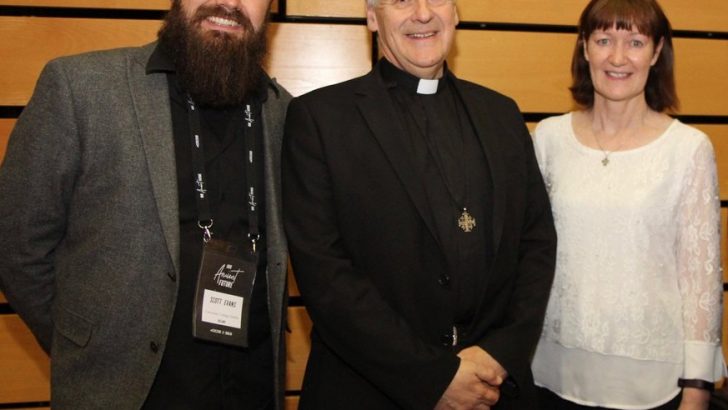“What must be borne in mind is the fact that daily Mass is a (praiseworthy) devotional exercise”, writes Editor Michael Kelly
Chaplains at universities and other third level institutions in the Republic were getting it in the neck this week. Atheist Ireland – a body which, oddly, seeks to present itself as the representative organisation of those who don’t acknowledge God’s existence – is jumping up and down about the fact that some €1.5million is spent every year employing chaplains to assist students away from home for the first time.
To put it in perspective, the money spent is equivalent to about 0.0028% of the State’s overall expenditure. In other words, a tiny amount. The Irish Times reported the story along with figures for the number of students who attend weekly Mass in college. Unsurprisingly, weekly Mass attendance amongst 18-year-olds running from pillar to post is small. In some colleges, in single figures.
Is this really a revelation? Quite apart from the fact that attendance at Mass is a crude measure in assessing the usefulness of chaplaincy, such a narrow focus ignores the multifaceted role of a chaplain and the fact – by necessity – that much of a chaplain’s work is under the radar.
At one level, Mass attendance is a useful metric. I’m always wary of those who insist that numbers don’t matter, but while bums on seats are not the be-all-and-end-all, they do matter. However, what must be borne in mind is the fact that daily Mass is a (praiseworthy) devotional exercise rather than something that is expected of Catholics by the Church.
Norm
There’s also the simple fact that, whether at college or in our parishes, young people do not go to Mass in the same numbers as they did in the past. It’s become a norm of our culture, and one that is worrying for the Church and disappointing for parents who have come to see Sunday Mass as an important part of their spiritual life.
Yet – as the census will prove later this month – the overwhelming majority of our younger people still consider themselves Catholic and part of the Church.
One of the things the Church has to struggle with at an institutional sense is the fact that younger Catholics don’t have the sense of regular engagement that previous generations had. Being Catholic does not mean for them what it meant to their parents and grandparents. Yet, they have not cut the cord.
Third-level chaplains tell me that they are busier than ever. Young people who are not regular massgoers are regular visitors to chaplains. One only has to bring to mind tragedies that affect young people to see the vital role played by priests and lay chaplains in our colleges. After the devastating balcony collapse in California last year when six students lost their lives, the chapel in UCD became the instant focus.
Students of all religious creeds and none gathered in that space to remember their friends and to give voice to their sadness.
Anxiety
Being away from home for the first time as a student is tough. Loneliness, anxiety, the thirst to belong and the quest for acceptance all loom large. Third level chaplains meet these needs, often in unseen ways. I remember a priest who worked as a chaplain at a large university once telling me that if every student who came to him for help came to Mass on a Sunday evening, the chapel couldn’t accommodate them.
Any chaplain will tell you that they are often the first port of call when a young person feels stressed, depressed or when there are relationship problems.
Chaplains get very little support, often they feel that they are the poorer relations of the counselling industry that has sprung up at universities. Counselling, undoubtedly, has a role, but it can address just one aspect of the human condition.
We are religious people by nature (however we choose to express that) and no amount of bellyaching will change that.
Third level chaplains offer a vital support line to students and they deserve our credit, not crude calculations about their usefulness.


 Michael Kelly
Michael Kelly Scott Evans, Rev. Steve Brunn and Sr Bernadette Purcell
Scott Evans, Rev. Steve Brunn and Sr Bernadette Purcell 